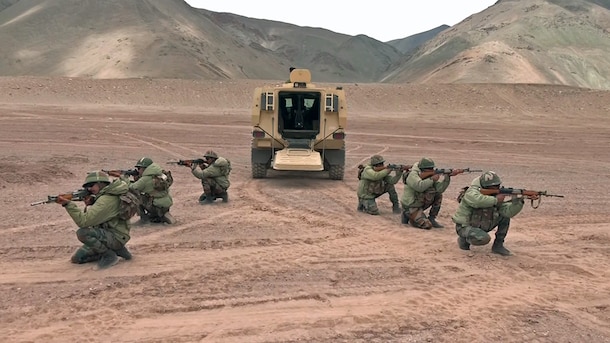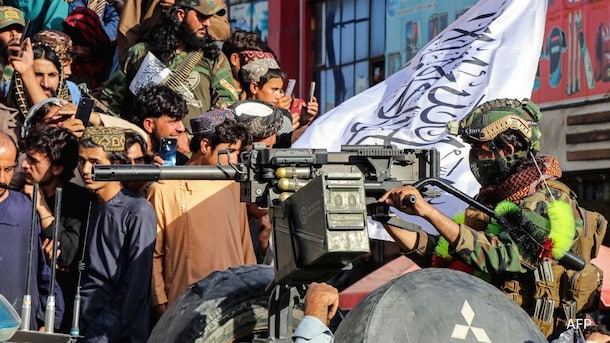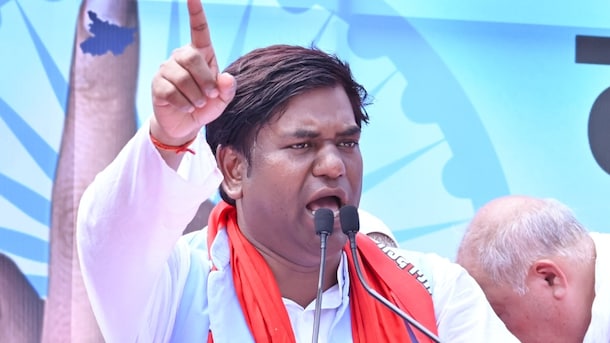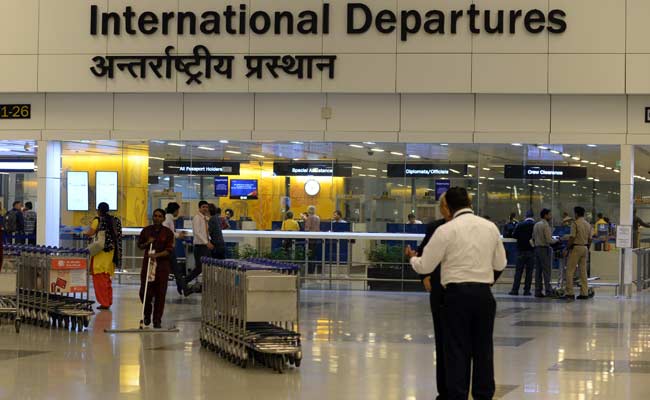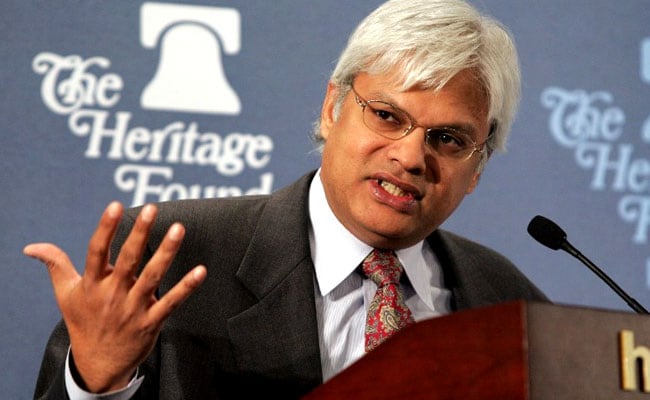Opinion | Does India Control The Taliban?
By trying to cover its own inadequacies in terms of domestic and neighbourhood policies using India's alleged involvement, Pakistan is again playing the victim card. But why does India let these accusations go mostly unchallenged?

Dispelling a useful myth is an act of naivete. It is no wonder, then, that the fiction of India exerting an inexorable pressure on Afghanistan's internal affairs continues unchallenged. As a matter of fact, facts are dispelled in favour of this myth.
Pakistan's Foreign Minister Khawaja Asif has yet again made an outrageous claim with respect to Indian engagement with the Taliban. "The people in Kabul pulling the strings and staging the puppet show are being controlled by Delhi," said the minister, infamous for routinely making statements that have precious little to do with supporting evidence. India is, yet again, being treated as a convenient scapegoat for the failed Afghanistan-Pakistan peace summit in Turkey.
India And Afghanistan, Over The Years
After the first Taliban takeover of Afghanistan in 1996, India followed a policy of undermining the regime it did not officially recognise by funding and equipping its rival, the Northern Alliance. The Indian embassy in Kabul was shut, only to be reopened after the US military intervention ousted the Taliban.
The only exception came in the form of humanitarian or cultural outreaches, like one in 2001, when the Taliban ordered the destruction of the Buddhas of Bamiyan. New Delhi then urged the Taliban government to allow the statues - irreplaceable objects of not just the Indian-origin Buddhist legacy but also world heritage - to be transferred to India. The Taliban didn't pay any heed to this request and destroyed the Buddha statues.
Indian engagement with Afghanistan saw a meteoric rise between 2001-2020, when humanitarian and infrastructure aid from New Delhi poured in for the reconstruction of the war-torn country. The engagement paused with the US withdrawal in 2021. During the two decades separating the first and the second Taliban regime in Afghanistan, India has maintained no relations with the Taliban, even informally.
The Picture Today
India has been vociferous in condemning the human rights violations committed against the minorities and women by the Taliban. There was an acute sense of betrayal and indignation in both India and Afghanistan when New Delhi did not help individuals and organisations targeted by the Taliban. Despite the civil society's appeals within the country and hapless cries in Afghanistan, the Indian government refused to engage with the Taliban. Historical ties between the two countries became a casualty of the US foreign policy and unimaginative strategic thinking on New Delhi's part.
Since 2021, India's 'influence' in Afghanistan has steadily waned. New Delhi and Kabul have nothing in common at this moment except a fruit-and-nut flavoured nostalgia and the ashes of future prospects many Afghan youngsters believed in during their education in Indian institutions. A small mission in Kabul has been taking care of humanitarian aid mostly.
After two years of limited and sporadic engagement with the Taliban, it is only in 2025 that India has openly suggested a recalibration of its approach in Afghanistan. At this moment, India lacks political, military, and financial levers with the Taliban. The announcement to reopen the embassy in Afghanistan has come only after Taliban Foreign Minister Amir Khan Muttaqi's recent New Delhi visit.
What Irked Pak So
What seems to have rattled Pakistan is probably one sentence in the joint statement issued by India and Afghanistan during this visit. "The Afghan Foreign Minister reiterated the commitment that the Afghan government will not allow any group or individual to use the territory of Afghanistan against India." Pakistan, a historically close ally of the Taliban, cannot be happy with this unequivocal show of goodwill towards India. Right now, when Taliban-Pakistan relations are at an all-time low, using India as a disruptor comes easy.
To accuse India, therefore, of being the ringleader of the Taliban is nothing beyond the time-honed practice of the Pakistan establishment aiming at domestic consensus-building. Post Operation Sindoor, there has been a revitalised bellicist tendency in Pakistan.
The latest accusation also serves a crucial diplomatic purpose. By calling the Taliban's recent spate of attacks on Pakistan as India's proxy warfare, Islamabad aims to distance itself from the de facto rulers of Afghanistan after a revamp of the US-Pakistan relations. Nothing earns the US goodwill better than a show of solidarity against the common enemy, sweetened further with the promise of some rare materials.
Victim Card, Again
By trying to cover its own inadequacies in terms of domestic and neighbourhood policies using India's alleged involvement, Pakistan is again playing the victim card, flinging liberally its favourite catch phrase 'regional stability' at whomever is concerned. Pakistan has been routinely doing the same with the Baloch dissent within its borders.
But why does India let these accusations go mostly unchallenged? One possible reason could easily be ego. Agencies like to be feared. Nothing establishes their credentials better than the stories of their 'involvement' in important events. As Thomas Hobbes once observed, "Reputation of power is power." In South Asia's strategic theatre, the perception of influence can often matter more than its reality for all parties concerned.
(Nishtha Gautam is a Delhi-based author and academic)
Disclaimer: These are the personal opinions of the author
-
Trishul: India's Mega Tri-Service Military Exercise Rattles Pakistan
Trishul, NDTV was told, is meant to send a clear message to Pak, that India stands ready to defend its territory and, if necessary, pick up where Operation Sindoor left off in May.
-
The Rafale Pilot Pak Lied About Capturing, And The MiG-21 Pilot It Did
Squadron Leader Singh's journey to the Rafale cockpit began eight years ago, in 2017, when she was commissioned into the Indian Air Force.
-
Pak-Afghan Inch Closer To 'Open War' After Failed Turkey Peace Talks
The failed talks have also refocused attention on Pakistan Defence Minister Khawaja Asif's remarks, that Islamabad may have no choice but to engage in open conflict" if dialogue fails.
-
Opinion | 95% Of Gen-AI Projects Are Failing - And Markets Can Smell The Fear
Many firms are struggling to display profits from their AI investment. A new MIT study revealed that approximately 95% of generative AI business efforts are failing, with only 5% achieving meaningful revenue growth.
-
NDTV Exclusive: What Spending 24 Hours Inside A Gaza Refugee Tent Looks Like
They have been displaced 18 times. Eighteen times since the start of what Esraa calls "the genocide." Her tone is not bitter, just exhausted, heavy with the knowledge that this, too, may not be their final stop.
-
From 2020 To 2025: Mukesh Sahani's 25-Seat, Deputy Chief Minister Demands
Former Bollywood set man Mukesh Sahani could complete a storybook transition from the silver screen to becoming the second most powerful man in Bihar, if the Mahagathbadhan wins the 2025 Assembly election.
-
Opinion | Pak's Great Game: What Rawalpindi Really Wants From Its War With Afghanistan
Get the US in and get the money for itself - that's Pakistan's single-point agenda. And it's doing everything it can to achieve this.
-
Explained: 350 vs 1,100, CPCB vs IQAir, Who Has Got Delhi's AQI Right
Both CPCB and IQAir follow different methods of calculating air quality index, resulting in different numbers.
-
Opinion | Indians Are Growing Sick Of Customs Harassment - But Who Cares?
You would think that the Wintrack experience would serve as an example to customs officials and make them more careful and professional when dealing with citizens. In fact, the opposite is true.
-
Opinion | What Ashley Tellis 'Spying' Allegation Should Tell India About Chinese 'Influence Ops'
Two separate cases underscore one of the most serious challenges that open democracies are facing today in managing Chinese aggressive tactics when it comes to influence operations.
